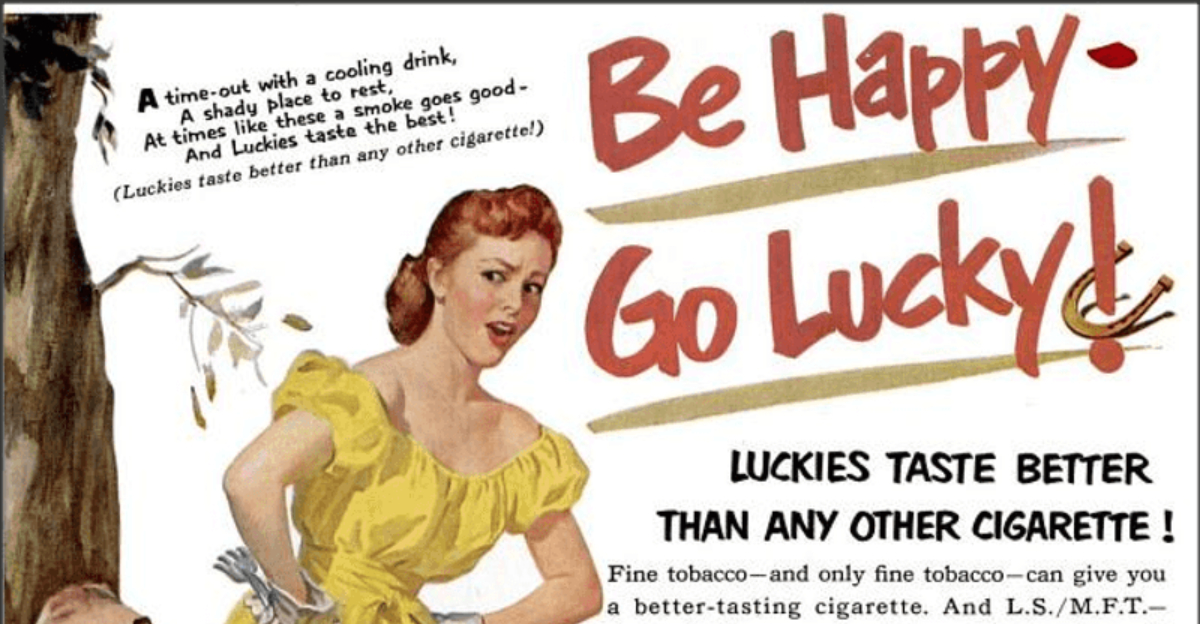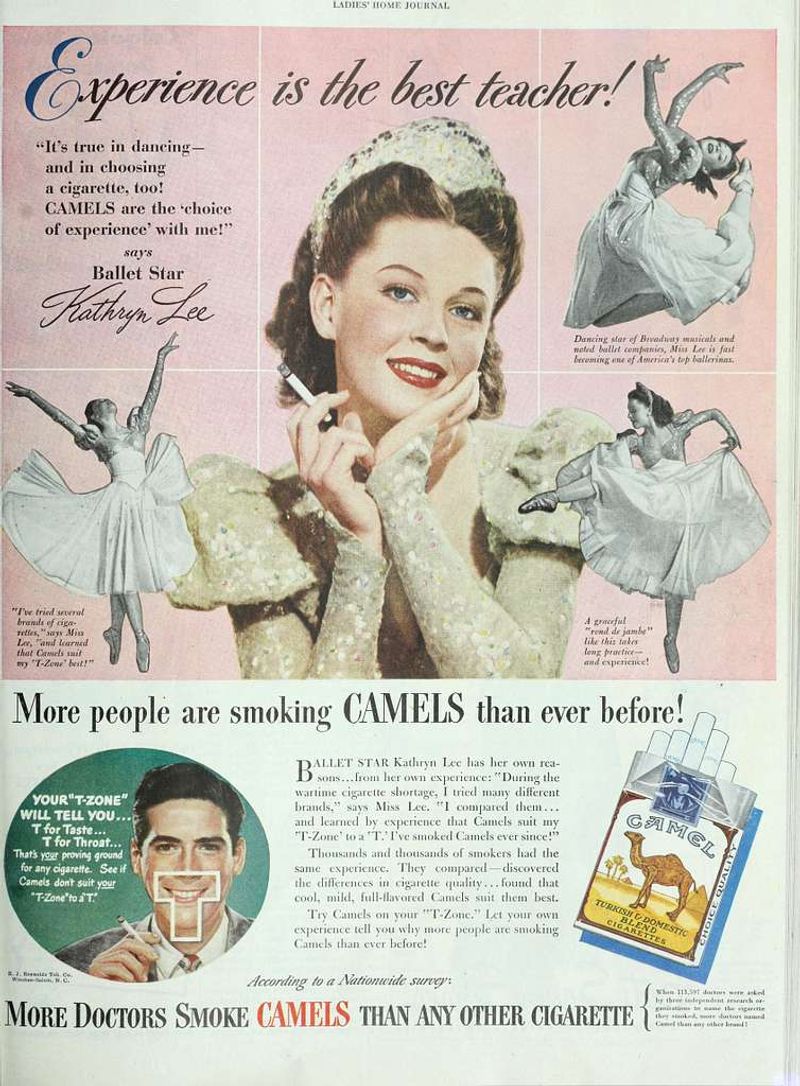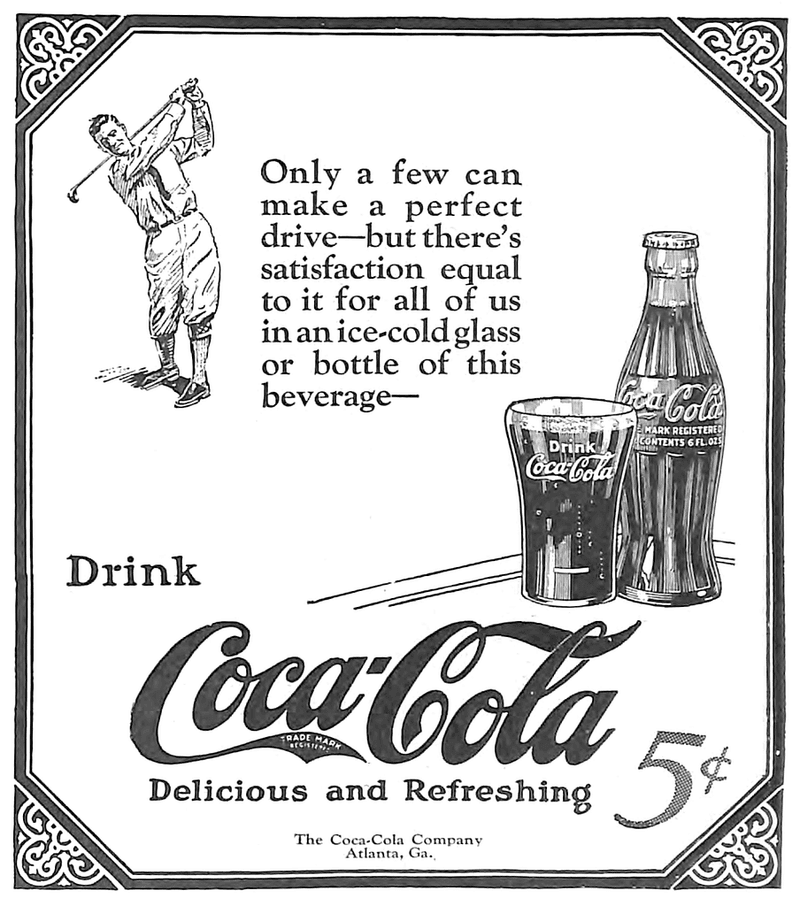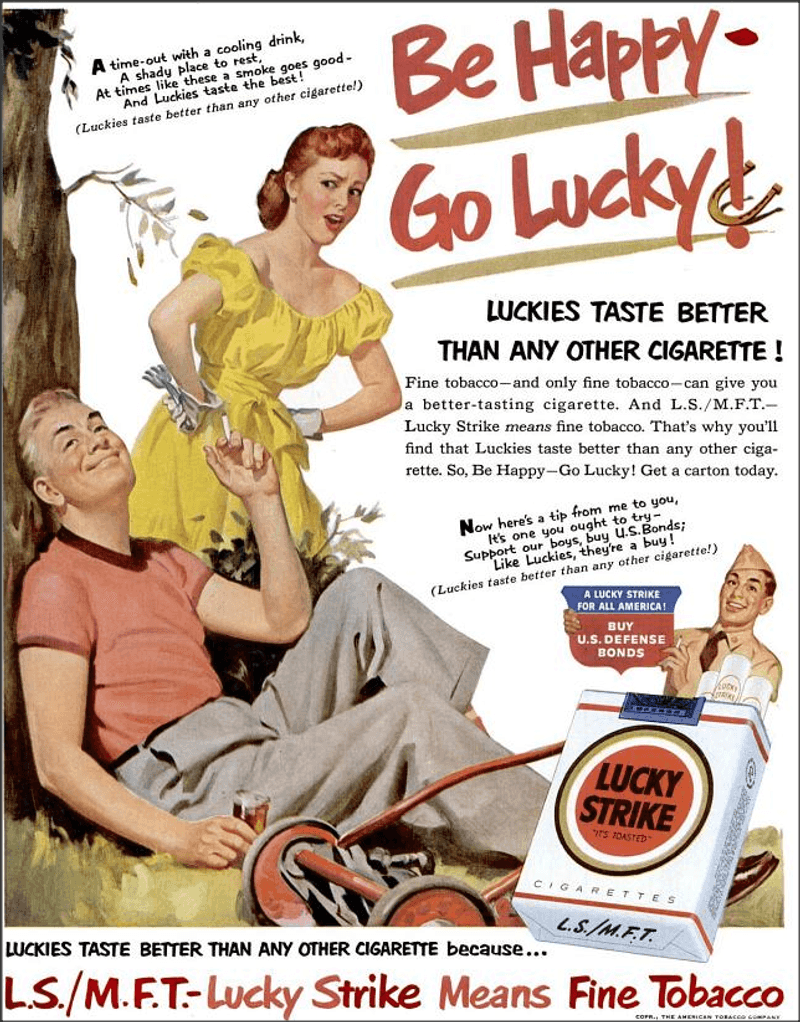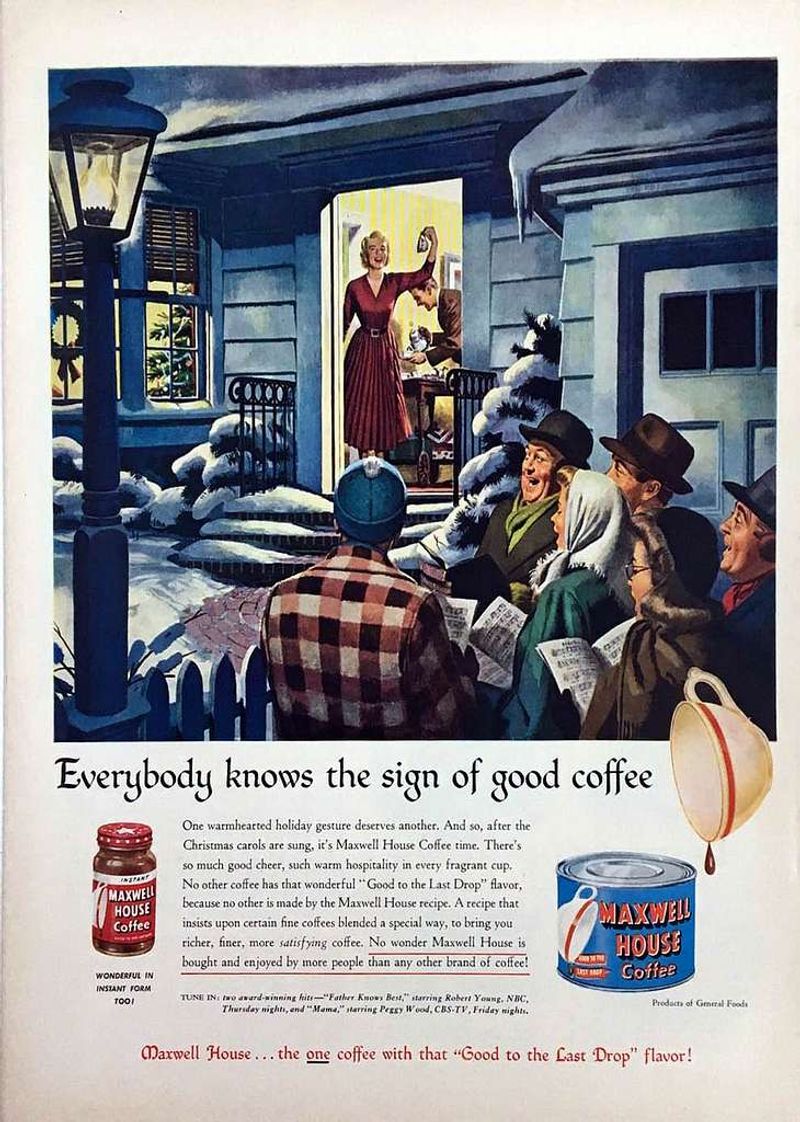Advertising has come a long way since the early days of marketing. Back then, companies tried their best to sell products, but sometimes their ideas were so strange that they make us laugh today. From doctors recommending cigarettes to babies drinking soda, these old ads show how much times have changed and remind us that even big companies can make hilariously bad choices.
Camel Cigarettes “The Cigarette Doctor Recommends It!”
Picture this: doctors actually promoting cigarettes in advertisements. Camel’s famous line claimed “More doctors smoke Camels than any other cigarette,” as if medical endorsement made smoking totally safe.
That single sentence now sounds completely absurd and almost comedic. The thought that a healthcare professional would encourage smoking—and that consumers would find it reassuring—is mind-blowing.
This relic from tobacco’s golden age perfectly captures the wild differences in advertising ethics and public health awareness between then and now.
Coca-Cola “Drink Coca-Cola, Be Happy”
Coca-Cola’s classic slogan positioned a simple fizzy drink as your direct ticket to happiness. “Drink Coca-Cola, Be Happy” promised that one sip could magically fix your mood.
The simplicity and cheerful optimism are genuinely charming, but in hindsight, it’s unintentionally funny in its pure earnestness. One gulp solving all your problems? Sure!
It’s a perfect snapshot of an era when companies were just figuring out how to sell emotions and feelings through carbonated beverages and simple slogans.
Alka-Seltzer “I Can’t Believe I Ate the Whole Thing”
Remember the groaning man dramatically moaning “I can’t believe I ate the WHO-O-O-OLE thing” after stuffing himself silly? That’s Alka-Seltzer’s iconic campaign in action.
The formula was simple: man suffers from overeating, reaches for fizzy medicine, relief arrives. The over-dramatic delivery and predictable setup now read like pure slapstick comedy.
Back in its heyday, audiences found it genuinely humorous and relatable. Today, it’s charmingly dated and represents a simpler time in pharmaceutical advertising when exaggeration was king.
Lucky Strike Cigarettes “Be Happy, Go Lucky”
Mid-century tobacco ads like Lucky Strike’s “Be Happy, Go Lucky” campaign featured impossibly glamorous smokers in sleek, sophisticated settings. Smoking equaled instant happiness and class, apparently.
The suggestion that lighting up a cigarette would magically make you happier or more refined is absolutely ridiculous by today’s health standards. Yet back then, it was genuinely persuasive.
Now it’s unintentionally hilarious to see how confidently these ads linked smoking with positive emotions, completely ignoring the serious health consequences we understand today.
Maxwell House “Good to the Last Drop” – Overly Serious Coffee
Maxwell House’s long-running “Good to the Last Drop” slogan came with early ads featuring overly dramatic coffee-drinking scenes. Stern businessmen would pause their important work for that precious final sip.
The formality and seriousness surrounding a simple cup of coffee is what makes these ads so amusing today. It’s just coffee, not a life-changing experience!
The combination of mundane activity with theatrical presentation creates unintentional comedy. These ads treated morning coffee like some kind of sacred ritual worthy of Shakespeare-level drama and reverence.
Kodak Carousel Camera – “Color Your Memories”
Kodak’s “Color Your Memories” campaign featured print ads showing impossibly perfect family scenes. Kids laughing on cue, radiant moms, relaxed dads—all with impossibly saturated colors and idealized poses.
The massive gap between these picture-perfect moments and actual messy family life is what makes them unintentionally funny. Real families never looked this polished.
These ads created an unrealistic fantasy world that now seems more like comedy sketches than genuine photography marketing. The perfection is so exaggerated it becomes absurd and entertaining.
Pepsi “Diet Anytime” – White-Coated Scientist
Some Pepsi diet-product ads featured a serious scientist in a crisp white lab coat, earnestly assuring consumers that their artificial sweetener was “scientifically just like sugar!” Complete with test tubes and everything.
While this approach seemed credible at the time, the cheesy pseudo-science presentation now reads as unintentionally absurd. Lab coats don’t automatically make claims legitimate.
The attempt to add scientific authority to soda marketing is hilariously transparent in hindsight. It’s a classic example of advertisers borrowing credibility from science without actual scientific backing.
